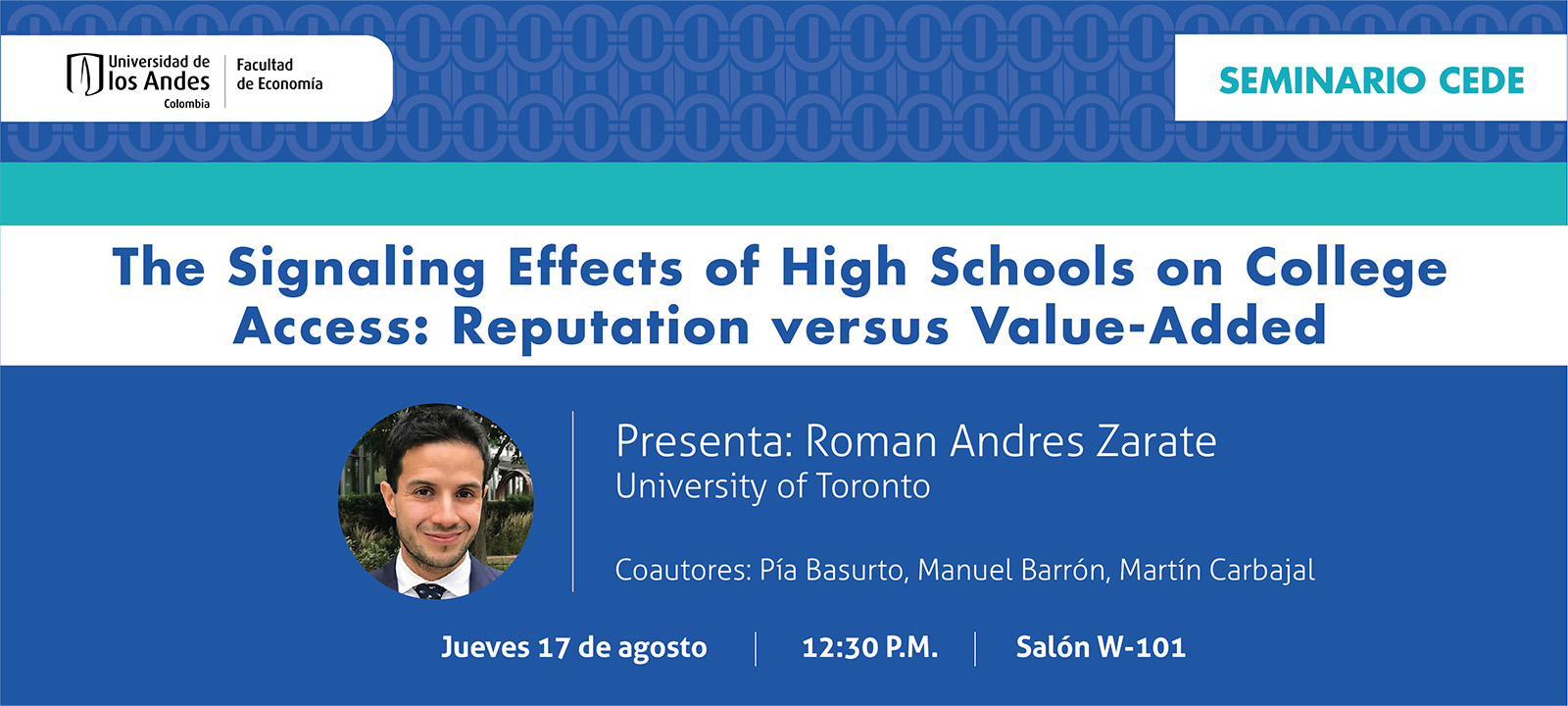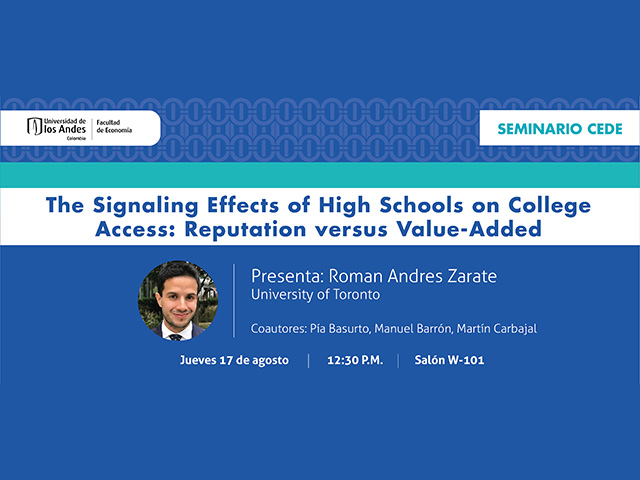Seminario CEDE - Roman Zarate

This paper examines schools' effects on college outcomes in Peru, a country without a high school exit standardized test, relate to school reputation and school value-added on learning. We first estimate the impact of selective public exam schools on college outcomes using an RDD around the admission cutoffs. Despite little evidence of gains in learning, graduating from these schools improves college applications, admissions, and enrollment, especially at top private universities. We provide evidence that this result is partially explained by selective exam schools serving as a signal about applicants' abilities. The effects are similar for other signals, such as marginally obtaining the IB diploma. We next estimate and validate school value-added on college outcomes for all high schools in Peru. Consistent with the exam school effects, school gains on test scores are not predictive of effects on college outcomes after controlling for average high school graduates' characteristics. These results are consistent with distortions in the transition from high school to higher education due to information frictions.

